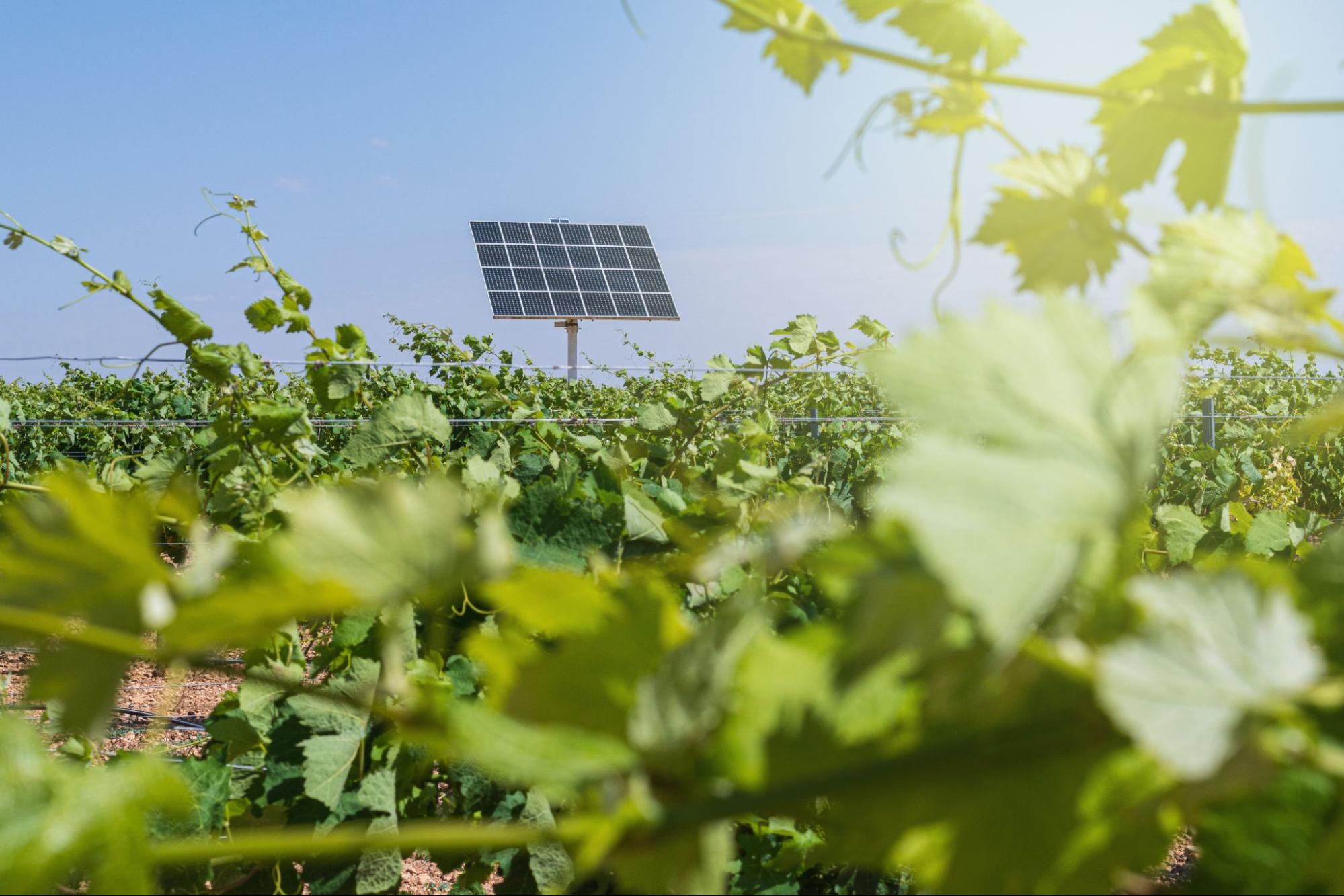- Wine Color/Type
- Top Occasions
- Unique Wines
- Surprise Me!
Embracing Wine Sustainability
Discover the importance of sustainable wine production and how it contributes to a healthier planet
(Solar panels are a piece of the puzzle. Photo: Ev Carre/stock.adobe.com)
Introduction: The Rise of Wine Sustainability
In recent years, wine sustainability has become more than just a trend—it's a commitment to our planet. As wine lovers, we have a responsibility to understand the impact of our choices. From the vineyard to the glass, every step in the wine production process can contribute to a healthier planet. At Vinovoss, we're passionate about sustainability and we want to share that passion with you.
Factor 1: Environmentally-Friendly Vineyard Practices
One of the significant aspects of sustainable wine production is adopting environmentally-friendly vineyard practices. This includes methods such as organic farming, which avoids the use of synthetic pesticides and fertilizers, and biodynamic farming, a holistic approach that views the vineyard as a self-sustaining ecosystem. Water conservation and energy efficiency are also key components. For instance, many vineyards are now using solar panels to generate electricity and drip irrigation systems to minimize water usage.
Factor 2: Ethical Labor Practices
Beyond the environmental aspect, wine sustainability also encompasses ethical labor practices. This means ensuring fair wages and safe working conditions for all those involved in the wine production process. Some vineyards even provide housing and education opportunities for their workers and their families. By choosing wines from these vineyards, we can contribute to more equitable and inclusive communities.
Factor 3: Sustainable Packaging and Shipping
The final factor in wine sustainability is the packaging and shipping process. Many wineries are now using lighter bottles, recycled materials, and biodegradable packaging to reduce their carbon footprint. They're also optimizing their shipping methods to minimize environmental impact. For example, shipping in bulk and using sea freight instead of air freight can significantly reduce carbon emissions.
Examples of Sustainable Wines
There are many examples of sustainable wines that you can enjoy without guilt. For instance, Domaine Bousquet from Argentina is known for its organic and biodynamic practices. Closer to home, California's Frog's Leap Winery is committed to dry farming and has been certified organic since 1988. At Vinovoss, we feature a wide range of sustainable wines for every taste and budget.
Conclusion: The Future of Wine is Sustainable
In conclusion, wine sustainability is not just beneficial for the planet—it can also result in higher quality wines. As consumers, we have the power to drive change by choosing sustainable wines. So the next time you raise your glass, make it a toast to our planet. Visit Vinovoss today to explore our selection of sustainable wines.
Latest articles

